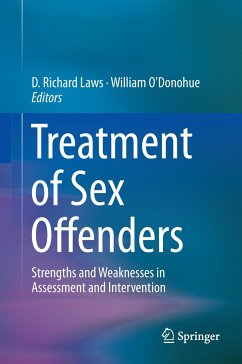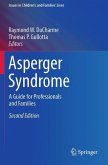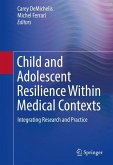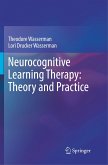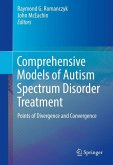This rigorous survey offers a comprehensive rethinking of the assessment and treatment of sexual offenders for a bold challenge to practitioners. It critiques what we understand about offenders and the mechanisms of offending behaviors, and examines how this knowledge can best be used to reduce offending and relapses.
To this end, experts weigh the efficacy of common assessment methods and interventions, the value of prevention programs, and the validity of the DSM's classifications of paraphilias. This strengths/weaknesses approach gives professional readers a guide to the current state as well as the future of research, practice, and policy affecting this complex and controversial field.
Included in the coverage:
Strengths of actuarial risk assessment. Risk formulation: the new frontier in risk assessment and management. Dynamic risk factors and offender rehabilitation: a comparisonof the Good Lives Model and the Risk-Need-Responsivity Model. The best intentions: flaws in sexually violent predator laws. Desistance from crime: toward an integrated conceptualization for intervention.From a victim/offender duality to a public health perspective.
A call to clear thought and accurate action, Treatment of Sex Offenders
will generate discussion and interest among forensic psychologists, psychiatrists, clinical psychologists, and social workers.
To this end, experts weigh the efficacy of common assessment methods and interventions, the value of prevention programs, and the validity of the DSM's classifications of paraphilias. This strengths/weaknesses approach gives professional readers a guide to the current state as well as the future of research, practice, and policy affecting this complex and controversial field.
Included in the coverage:
Strengths of actuarial risk assessment. Risk formulation: the new frontier in risk assessment and management. Dynamic risk factors and offender rehabilitation: a comparisonof the Good Lives Model and the Risk-Need-Responsivity Model. The best intentions: flaws in sexually violent predator laws. Desistance from crime: toward an integrated conceptualization for intervention.From a victim/offender duality to a public health perspective.
A call to clear thought and accurate action, Treatment of Sex Offenders
will generate discussion and interest among forensic psychologists, psychiatrists, clinical psychologists, and social workers.
"High-profile authors have written 14 chapters covering a wide range of topics, including risk assessment, assessment of disordered sexual arousal, strengths and weaknesses of treatment, and community control. ... Treatment of Sex Offenders is a well-written book ... edited by two well-respected figures in the field. ... this appears to be an important contribution to the field and will prove to be quite useful for documenting the current state-of-the-art in assessment and treatment of sexual offenders." (Anita Schlank, PsycCRITIQUES, Vol. 61 (36), September, 2016)
"The intended audience is forensic psychologists, psychiatrists, clinical psychologists, and social workers. The book is written by an international collection of authors from the U.S., the U.K., Canada, Germany, and New Zealand. ... This book does a good job of discussing both theoretical and clinical issues. The strengths/weaknesses approach helps clinicians to better understand what works and what does not. It should be in the libraries of professionals and researchers who work with sexual offenders." (Gary B. Kaniuk, Doody's Book Reviews, August, 2016)
"The intended audience is forensic psychologists, psychiatrists, clinical psychologists, and social workers. The book is written by an international collection of authors from the U.S., the U.K., Canada, Germany, and New Zealand. ... This book does a good job of discussing both theoretical and clinical issues. The strengths/weaknesses approach helps clinicians to better understand what works and what does not. It should be in the libraries of professionals and researchers who work with sexual offenders." (Gary B. Kaniuk, Doody's Book Reviews, August, 2016)

